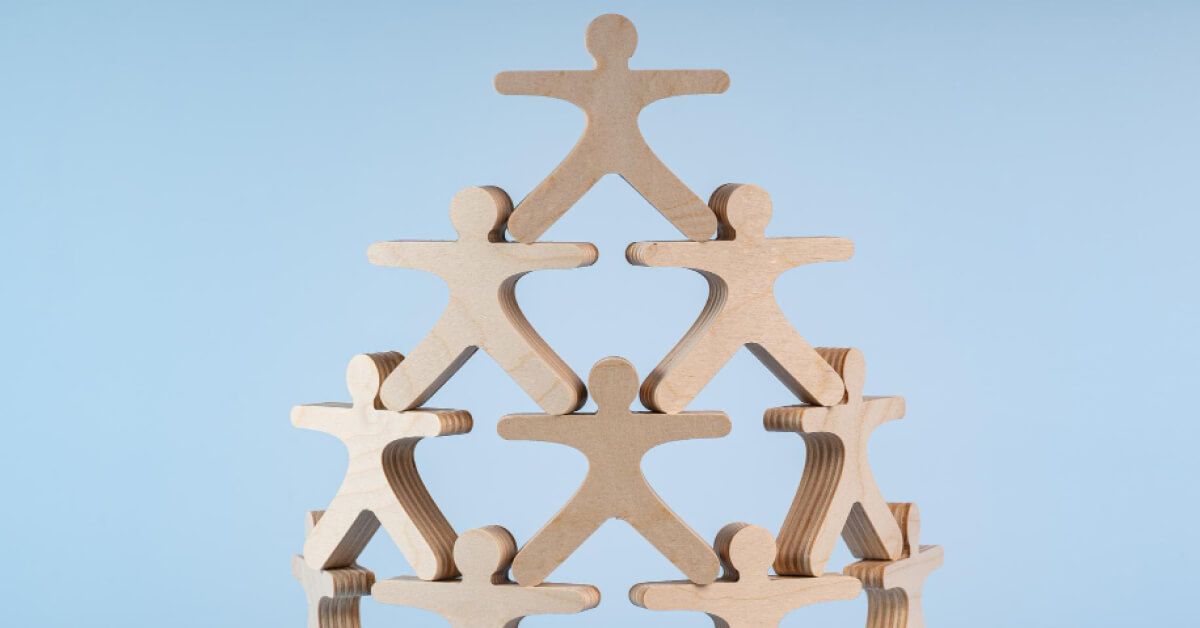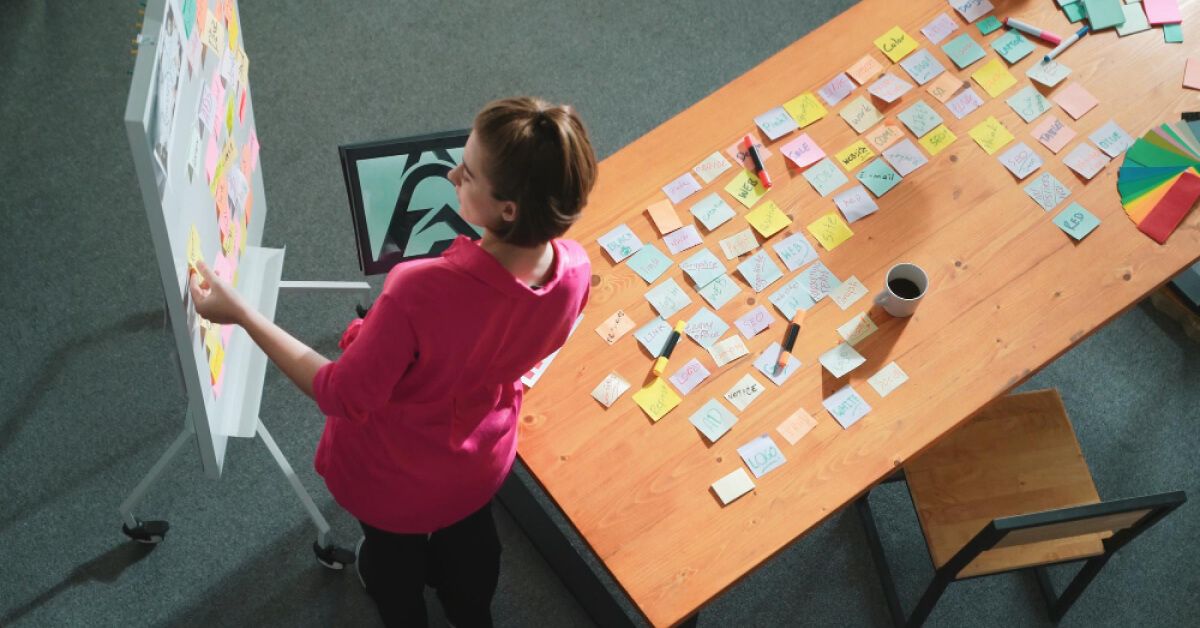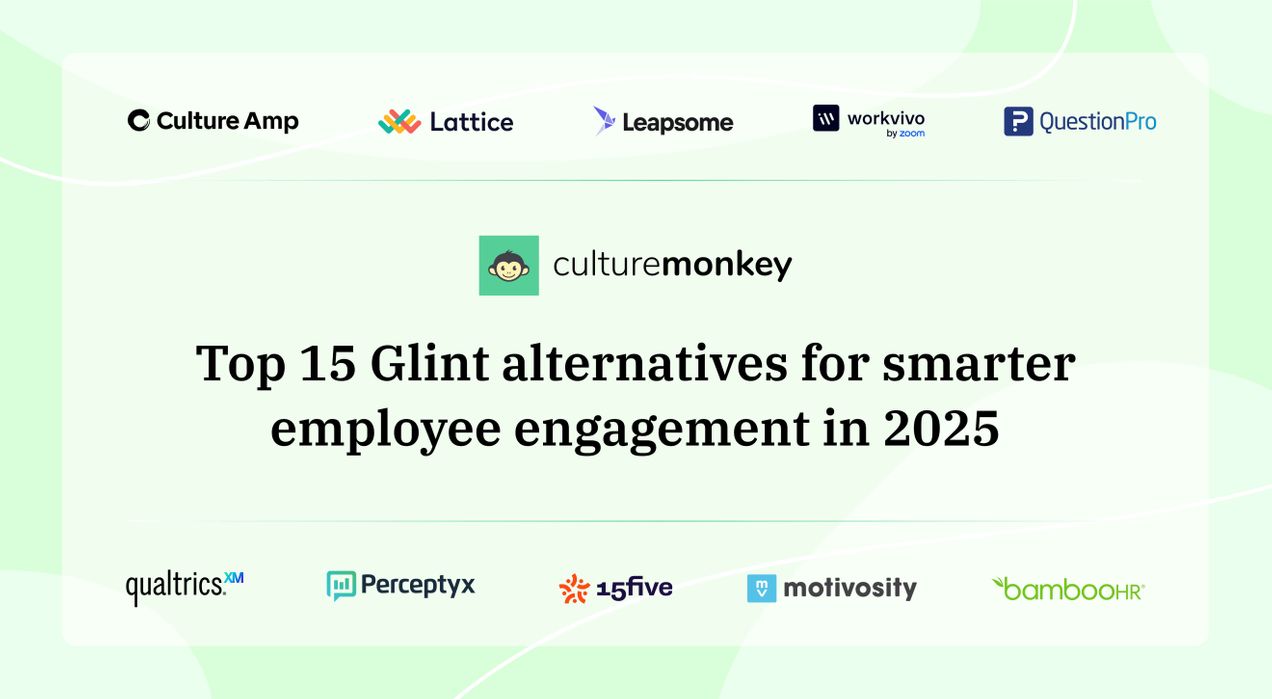101+ Employee engagement event ideas and examples that keep your employees engaged

Picture this: A bustling office, the hum of productivity in the air, and employees with smiles on their faces, eagerly anticipating the next event on the company calendar. This isn't a scene from a corporate dream but a reality for organizations that have mastered employee engagement.
In today’s fast-paced work environment, employee engagement is a strategic imperative. Companies that invest in their employees’ well-being see remarkable benefits: higher productivity, lower turnover, and a vibrant workplace culture.
But navigating the path to consistent engagement can be challenging. Fear not, as we guide you through this intricate maze with innovative, quirky, and fun employee engagement event ideas that will breathe new life into your organization.
From team-building activities to wellness programs, and creative workshops to community service initiatives, our curated list covers every angle. These ideas are backed by real-world success stories. Whether you’re an HR professional seeking fresh inspiration or a manager aiming to boost morale, this guide is your go-to resource.
Fasten your seatbelts and embark on a journey of discovery. Uncover ways to connect with employees, celebrate their contributions, and create an environment where everyone feels valued and motivated. Welcome to the ultimate compendium of the best employee engagement ideas and events that will elevate your workplace to new heights.
Employee engagement events: Definition

Employee engagement events are organized activities designed to enhance the connection employees feel toward their workplace. These events play a crucial role in building a positive organizational culture by fostering camaraderie, boosting morale, and promoting a sense of belonging among employees.
Unlike regular work tasks, these events are geared towards fun, relaxation, and interpersonal connection, offering employees a chance to unwind, bond with colleagues, and gain new perspectives.
At their core, employee engagement events aim to create an environment where employees feel valued and appreciated. They range from simple activities like team lunches and game nights to more elaborate events like company retreats, wellness workshops, and volunteer days.
The common thread in all these activities is their focus on enhancing employee satisfaction and well-being. By providing opportunities for employees to interact in a relaxed setting, companies can break down hierarchical barriers and promote open communication.
These events also serve as a platform for recognizing and celebrating achievements. Whether it's an award ceremony, a milestone celebration, or an appreciation day, recognizing employees' contributions in a public forum reinforces their importance to the organization.
This acknowledgment not only boosts individual morale but also fosters a culture of mutual respect and appreciation. Employee engagement events can be tailored to address specific organizational goals and challenges.
For instance, team-building exercises can improve collaboration and teamwork, while wellness programs can reduce stress and promote a healthy work-life balance. By strategically planning these events, companies can address specific needs and enhance overall productivity.
What are the objectives of conducting employee engagement events at work?

A Gallup survey conducted in 2021 revealed that 76% of workers consider well-being as important for engagement. Conducting employee engagement events at work serves several key objectives that contribute to a positive and productive workplace environment. Here are 9 primary objectives:
1. Enhance employee satisfaction and morale
- Boost happiness: Engagement events provide employees with enjoyable experiences, leading to increased job satisfaction and boost employee engagement.
- Foster positivity: Positive interactions during events can elevate overall workplace morale.
2. Strengthen team collaboration and communication
- Build relationships: These events encourage employees to interact with colleagues they might not usually work with, strengthening relationships.
- Improve teamwork: Team-building activities enhance cooperation and effective communication among team members.
3. Recognize and reward contributions
- Acknowledge achievements: Events can serve as platforms to publicly recognize and reward employees' hard work and accomplishments.
- Motivate performance: Recognition boosts employee motivation and encourages continued high performance.
4. Promote a healthy work-life balance
- Reduce stress: Engagement activities, especially wellness programs, help alleviate work-related stress and promote relaxation.
- Encourage balance: These events underscore the importance of maintaining a healthy balance between work and personal life.
5. Increase employee retention and loyalty
- Enhance loyalty: Engaged and satisfied employees are more likely to stay with the company, reducing turnover rates.
- Build commitment: A strong sense of belonging and appreciation fosters greater loyalty and commitment to the organization.
6. Foster innovation and creativity
- Stimulate creativity: Creative workshops and brainstorming sessions can inspire innovative thinking and new ideas.
- Encourage experimentation: A relaxed environment during events can lead to more open and creative problem-solving approaches.
7. Align with organizational goals and values
- Reinforce culture: Engagement events can be designed to reflect and reinforce the company's core values and culture.
- Support objectives: Tailored events can address specific organizational goals, such as improving teamwork or enhancing leadership skills.
8. Build a positive employer brand
- Attract talent: A reputation for a vibrant and engaging workplace can attract top talent.
- Enhance image: A positive work environment contributes to a strong employer brand, benefiting recruitment and public relations.
9. Improve overall productivity
- Boost efficiency: Engaged employees are generally more productive and efficient in their roles.
- Reduce absenteeism: Higher engagement levels are associated with lower absenteeism, contributing to overall productivity. Infact, a Gallup study shows that highly engaged workplaces saw 41% lower absenteeism.
Why employee engagement events are important?

Employee engagement events are crucial as they foster a sense of community and belonging among staff, which can significantly boost morale and productivity.
These events provide opportunities for employees to interact in a relaxed environment, strengthening interpersonal relationships and breaking down hierarchical barriers. By promoting open communication and collaboration among remote employees, engagement events can lead to a more cohesive and motivated workforce.
Such events demonstrate that the organization values its employees' well-being and satisfaction, which can enhance job satisfaction and loyalty. When employees feel appreciated and connected to their workplace, they are more likely to be engaged and committed to their roles.
This, in turn, can lead to reduced turnover rates and the retention of top talent and new hires, ultimately benefiting the organization’s bottom line. Employee engagement events can serve as a platform for recognizing and celebrating achievements, fostering a culture of recognition and appreciation.
This not only boosts individual morale but also encourages a culture of excellence and continuous improvement. By investing in these events, organizations can create a positive work environment that supports both personal and professional growth, leading to increased overall productivity and organizational success.
Types of employee engagement events

Employee engagement events are crucial for fostering a positive workplace culture, enhancing team collaboration, and boosting overall morale. Here are various types of employee engagement events that organizations can organize:
1. Team building activities
Team building activities are designed to strengthen the bond among employees, enhance communication, and improve collaboration.
These activities create a sense of unity and trust, encouraging team members to work together more effectively. Such events often involve problem-solving tasks, outdoor adventures, and interactive workshops that promote teamwork and camaraderie.
2. Social events
Social events provide employees with opportunities to relax, socialize, and build relationships outside of the typical work environment.
These gatherings foster a sense of community and belonging, making employees feel valued and appreciated. Celebrations of holidays, cultural festivals, and company milestones contribute to a positive and inclusive workplace atmosphere.
3. Wellness programs
Wellness programs focus on promoting the physical and mental well-being of employees. By offering health and fitness challenges, yoga sessions, and mental health workshops, these programs aim to engage employees to reduce stress, increase productivity, and enhance overall employee satisfaction.
Wellness initiatives demonstrate a company’s commitment to the holistic health of its workforce.
4. Recognition and awards
Recognition and awards are crucial for acknowledging the hard work and achievements of employees. Formal ceremonies, peer-to-peer recognition programs, and milestone celebrations motivate employees by making them feel recognized and appreciated for remote work.
These events boost morale and encourage a culture of excellence and dedication within the organization.
5. Professional development
Professional development events are geared towards enhancing the skills and career growth of employees. Through training programs, mentorship opportunities, and career fairs, these career development events provide employees with the tools and knowledge needed to advance in their careers.
They underscore the company’s investment in the personal and professional growth of its workforce.
6. Community engagement
Community engagement activities connect employees with the broader community and encourage social responsibility. Volunteer programs, environmental initiatives, and fundraising events allow employees to give back and make a positive impact. These events foster a sense of purpose and pride, aligning company values with community betterment.
7. Creative and fun activities
Creative and fun activities encourage employees to express their creativity and enjoy moments of relaxation. Talent shows, art workshops, and game nights provide a break from routine work, sparking innovation and boosting employee morale. These events help in building a vibrant and enjoyable workplace culture.
8. Innovation and brainstorming sessions
Innovation and brainstorming sessions are designed to unleash the creative potential of employees. Hackathons, innovation days, and structured brainstorming workshops invite employees to pitch new ideas and develop creative solutions. These events foster a culture of innovation and continuous improvement within the organization.
9. Employee feedback and open forums
Employee feedback and open forums provide a platform for employees to voice their opinions, share ideas, and discuss concerns. Town hall meetings, suggestion box initiatives, and focus groups ensure that employees feel heard and valued.
These events promote transparency and trust between employees and management, leading to a more engaged and satisfied workforce.
7 Benefits of employee engagement events

Employee engagement events offer a multitude of benefits that significantly impact the workplace. Here are seven key benefits:
1. Enhanced job satisfaction and morale
Participating in enjoyable and meaningful activities significantly boosts overall job satisfaction among employees. These events create a positive workplace atmosphere, lifting spirits and fostering a more positive attitude throughout the organization.
2. Improved team collaboration and communication
Engagement events encourage employees to bond with colleagues, leading to stronger relationships and better teamwork. Team-building activities enhance communication skills, improving overall team dynamics and fostering a collaborative work environment.
3. Higher employee retention rates
Engaged employees are more likely to feel valued and appreciated, which reduces turnover rates. This increased loyalty among staff leads to lower recruitment costs, as there is less need for constant hiring and training of new employees.
4. Boosted productivity and efficiency
A motivated and engaged workforce is more committed to their roles, leading to higher productivity levels. Employees who feel satisfied and valued are more likely to perform at their best, directly contributing to the company's success.
5. Enhanced innovation and creativity
Creative and interactive events stimulate out-of-the-box thinking and innovation among employees. A relaxed and open environment during these events encourages the generation of fresh ideas and solutions, driving the company forward.
6. Strengthened organizational culture
Engagement events reflect and reinforce the company’s core values and culture. Employees who participate in these activities feel more connected to the company’s mission and goals, fostering a sense of belonging and loyalty to the organization.
7. Improved employee well-being and work-life balance
Wellness programs and fun activities help reduce stress and improve mental and physical health. By promoting a healthy work-life balance, these events lead to happier and healthier employees, enhancing overall well-being and contributing to a more positive work environment.
How often should you conduct employee engagement activities at work?

The frequency of employee engagement activities at work should strike a balance between maintaining enthusiasm and not overwhelming staff. Ideally, these activities should be conducted regularly enough to sustain engagement but not so often that they become a distraction from daily responsibilities.
A general recommendation is to organize small-scale activities monthly, such as team lunches, workshops, or casual gatherings, which can help maintain a continuous sense of community and appreciation.
In addition to monthly activities, larger-scale events such as team-building retreats, company-wide celebrations, or annual parties should be held at least once or twice a year. These events provide significant breaks from the routine and offer substantial opportunities for deeper bonding and recognition.
Quarterly activities, like departmental outings or charity events, can also be beneficial, offering varied experiences that keep engagement efforts fresh and exciting. It's essential to tailor the frequency and type of activities to the specific needs and culture of the organization.
Regular feedback from employees can help determine the optimal schedule and nature of these activities. By thoughtfully planning the frequency of employee engagement ideas and activities, companies can foster a positive work environment that continually motivates and supports their workforce.
101+ Employee engagement in-office and virtual events ideas to try in 2024

Here's a diverse list of 101+ engaging in-office and virtual event ideas to energize your workplace in 2024:
- Escape room challenges: Team-based puzzles to foster problem-solving skills.
- Scavenger hunts: Interactive searches to promote teamwork and office exploration.
- Mini golf or ping-pong tournaments: Fun competitions to build camaraderie.
- Yoga or meditation sessions: Relaxation activities to reduce stress.
- Healthy cooking workshops: Nutritious meal preparation to encourage wellness.
- Chair massages: Sessions to relax and rejuvenate employees.
- Skill-sharing workshops: Learning sessions on coding, design, or other skills.
- Lunch and learn: Educational sessions with experts during lunch breaks.
- Book clubs: Discussions to promote reading and knowledge sharing.
- Birthday celebrations: Monthly gatherings to celebrate team members.
- Employee awards: Recognition events to highlight achievements.
- Art and craft workshops: Creative activities like painting or crafting.
- Improvisation workshops: Fun sessions to enhance communication skills.
- Volunteer activities: Community service projects to give back.
- Tech demos: Demonstrations of new gadgets or software.
- Fitness challenges: Step challenges or office Olympics for physical activity.
- Holiday celebrations: Seasonal events like Halloween or Christmas parties.
- Diversity workshops: Sessions to promote inclusivity and understanding.
- Teambuilding games: Activities to strengthen relationships and teamwork.
- Wellness seminars: Workshops on mental health or stress management.
- Company anniversaries: Events to commemorate milestones and successes.
- Innovation days: Hackathons or brainstorming sessions for new ideas.
- Office decor competitions: Fun contests to decorate workspaces creatively.
- Lunchtime concerts: Music performances or jam sessions during breaks.
- Movie nights: Screenings of popular or motivational films.
- Trivia contests: Knowledge-based competitions for friendly rivalry.
- Networking events: Mixers to connect employees across departments.
- Professional development: Workshops on career growth and skills enhancement.
- Industry panels: Discussions with guest speakers on industry trends.
- Outdoor picnics: Gatherings in nearby parks for a change of scenery.
- Team olympics: Friendly competitions in various sports and games.
- Desk decorating contests: Creatively themed contests to personalize workspaces.
- Trivia quizzes: Fun quizzes on general knowledge or company history.
- Mindfulness workshops: Sessions to promote mental clarity and focus.
- Leadership development programs: Workshops to cultivate managerial skills.
- Coffee tastings: Sampling different coffee blends or brewing methods.
- Ice cream socials: Treats and socializing sessions for team bonding.
- Potluck lunches: Shared meals with homemade dishes from team members.
- Live art demonstrations: Artists showcasing their talents in the office.
- DIY planting workshops: Learning sessions on indoor gardening.
- Office karaoke nights: Singing sessions for a lively and fun atmosphere.
- Puzzle challenges: Collaborative puzzles or brainteasers.
- Board game nights: Playing classic or strategy games together.
- Photography contests: Competitions capturing office moments or themes.
- Guest speakers: Talks from industry experts or motivational speakers.
- Coding boot camps: Intensive workshops to improve coding skills.
- Innovation workshops: Brainstorming sessions for innovative ideas.
- Cook-off competitions: Culinary contests showcasing cooking skills.
- Gardening clubs: Maintaining office plants or creating green spaces.
- Employee-led workshops: Staff members sharing expertise or hobbies.
- Team challenges: Collaborative tasks or projects to achieve goals.
- Wellness challenges: Competitions to promote healthy habits.
- Ethics training: Discussions on workplace ethics and integrity.
- Storytelling sessions: Sharing personal or company-related stories.
- Craft beer tastings: Sampling different craft beers or brews.
- Product demos: Showcasing new products or services.
- Office fitness classes: Exercise sessions like aerobics or yoga.
- Lunchtime lectures: Informative talks on various topics of interest.
- Mind mapping workshops: Visual brainstorming sessions.
- Virtual reality experiences: Interactive simulations for team building.
- Painting parties: Guided painting sessions for creative expression.
- Movie nights: Screening movies or documentaries followed by discussions.
- Environmental awareness workshops: Initiatives to promote sustainability practices.
- Financial wellness seminars: Guidance on budgeting, investing, and financial planning.
- Creative writing workshops: Sessions to explore storytelling and writing skills.
- DIY home décor workshops: Projects to create personalized home decorations.
- Office talent shows: Showcasing talents and performances within the team virtual tours: Exploring famous landmarks or museums through virtual tours.
- Time management workshops: Techniques and strategies for effective time management.
- Outdoor adventure day: Teambuilding activities like hiking, rafting, or camping.
- Seasonal craft fairs: Showcasing handmade crafts and creations by employees.
- Motivational speaker series: Inspirational talks on personal growth and motivation.
- Science experiments: Fun and educational experiments to explore scientific principles.
- Pet therapy sessions: Bringing in therapy animals to reduce stress and boost morale.
- Office renovation projects: Collaborative efforts to redesign or improve office spaces.
- Digital detox day: Encouraging employees to unplug and engage in offline activities.
- Fitness challenges: Monthly fitness challenges with goals and rewards for participation.
- Holiday baking contests: Competitions to showcase baking skills and creativity.
- Health screenings: On-site health checks and screenings for employees.
- Virtual networking events: Online sessions to connect with industry professionals.
- Employee appreciation day: A dedicated day to celebrate and recognize employees’ contributions.
- Podcast club: Listening sessions and discussions on popular podcasts or industry topics.
- Art therapy workshops: Using art as a therapeutic tool for stress relief and creativity.
- Industry panel discussions: Panels with experts discussing current trends and challenges.
- Team charity challenges: Fundraising or volunteer challenges to support local charities.
- Board game tournaments: Competitions featuring a variety of board games and strategy.
- Tedtalk discussions: Watching and discussing inspiring tedtalks as a team stress management workshops: Techniques and practices for managing workplace stress.
- Virtual cooking classes: Online sessions to learn new recipes and culinary skills.
- Music jam sessions: Informal music sessions for employees to play instruments or sing together.
- Employee wellness fair: A day-long event with booths and activities promoting wellness.
- Astronomy night: Stargazing event with telescopes and discussions about astronomy.
- Leadership roundtables: Small-group discussions on leadership development and skills.
- Cultural diversity days: Celebrating and learning about different cultures within the workplace.
- Community speaker series: Inviting local community leaders to share insights and experiences.
- Virtual team retreats: Online retreats with workshops, teambuilding activities, and relaxation sessions.
- Mindfulness walks: Guided walks outdoors focusing on mindfulness and relaxation.
- Virtual escape rooms: Online puzzles and challenges for remote team building.
- Productivity workshops: Tips and tools for enhancing productivity and efficiency at work.
- DIY repair workshops: Learning basic repair and maintenance skills for office equipment or personal items.
- Self-care days: Providing resources and activities to promote self-care and well-being among employees.
- Online gaming tournaments: Organizing virtual gaming competitions for teambuilding.
- Virtual dance parties: Online dance sessions with themed music and fun challenges.
- Fashion show: Showcasing employees’ style with a themed fashion event.
- Art exhibitions: Displaying artworks created by employees in the office.
- Trivia challenges: Online trivia games with prizes for correct answers.
- Virtual book clubs: Discussions on books chosen by team members.
- DIY workshop series: Monthly sessions on creating crafts or projects.
- Motivational quotes wall: Creating a wall with inspiring quotes contributed by employees.
- Remote wellness workshops: Online sessions focusing on mental and physical well-being.
13 Tips and best practices for maximizing the impact of employee engagement events

Maximizing the impact of employee engagement events requires thoughtful planning and execution. Here are 13 tips and best practices to achieve this:
- Set clear objectives: Define specific goals for each event, such as boosting morale, fostering teamwork, or celebrating achievements.
- Align with company values: Ensure events reflect and reinforce the organization's values and culture to resonate with employees.
- Include variety: Offer a mix of activities to cater to diverse interests and preferences within the workforce.
- Promote participation: Encourage active involvement by all employees through interactive elements like team challenges or group discussions.
- Provide recognition: Use events as opportunities to recognize and celebrate individual and team achievements openly.
- Seek feedback: Gather input from employees before and after events to continuously improve future engagements.
- Ensure inclusivity: Make events inclusive by considering diverse backgrounds, interests, and accessibility needs.
- Offer learning opportunities: Incorporate workshops or skill-building sessions that contribute to professional development.
- Create networking opportunities: Facilitate interactions among employees from different departments or levels to enhance cross-functional relationships.
- Maintain consistency: Establish a regular schedule for events to maintain momentum and anticipation throughout the year.
- Follow-up: Reinforce the impact of events with follow-up actions, such as implementing ideas generated or addressing feedback received.
- Stay flexible: Be adaptable to unforeseen circumstances or feedback during events to ensure they remain engaging and effective.
- Measure impact: Use metrics like attendance rates, employee feedback surveys, or productivity indicators to assess the success and impact of events over time.
Role of employee engagement software in improving engagement at work

Employee engagement software plays a pivotal role in enhancing engagement levels within organizations by providing tools and platforms that facilitate communication, collaboration, and recognition. These software solutions offer several benefits that contribute to a more engaged employee workforce.
They enable consistent and transparent communication across all levels of the organization. Features such as employee feedback surveys, chat functionalities, and virtual suggestion boxes empower employees to voice their opinions and concerns, fostering a culture of open communication.
This inclusivity helps employees feel valued and heard in person too, thereby increasing their engagement with company goals and values. Employee engagement software often includes tools for recognizing and rewarding employee achievements.
Whether through peer-to-peer recognition programs, performance dashboards, or milestone celebrations, these platforms reinforce positive behaviors and contributions. By acknowledging and rewarding employees' efforts in real-time, these tools bolster morale and motivation, leading to higher levels of employee engagement tactics, and job satisfaction.
Employee engagement software serves as a catalyst for fostering a supportive and collaborative work environment where employees are motivated, connected, and committed to achieving shared goals.
By leveraging technology to enhance communication, recognition, and organizational initiatives, these tools contribute significantly to improving overall employee engagement and productivity.
Conclusion
Employee engagement software plays a crucial role in modern workplaces by facilitating effective communication, fostering a culture of recognition, and streamlining engagement initiatives.
By leveraging these tools, organizations can create an environment where employees feel valued, motivated, and connected, ultimately leading to increased productivity and satisfaction across the board.
It not only enhances organizational efficiency but also strengthens employee relationships and commitment, paving the way for a more cohesive and successful workplace culture.
To explore how tools like CultureMonkey can further enhance your organization's employee engagement strategy and efforts, consider integrating such platforms to sustain and amplify these positive impacts.
FAQs
1. What are employee engagement events?
Employee engagement events are organized activities or gatherings within a company aimed at fostering team cohesion, boosting morale, and enhancing workplace culture. These events can range from social gatherings and team-building exercises to wellness programs and professional development workshops.
2. Why are employee engagement events important?
Employee engagement events are crucial as they promote team bonding, improve communication, and boost morale among employees. They create opportunities for relaxation and socialization outside of work tasks, contributing to a positive work environment and increased employee job satisfaction.
3. What types of activities can be included in employee engagement events?
Activities can vary widely and include team-building exercises like outdoor retreats and escape rooms, social events such as holiday parties and family days, wellness programs like yoga sessions and health challenges, professional development workshops, and creative activities like talent shows or game nights.
4. How can organizations benefit from organizing employee engagement events?
Organizations benefit by improving employee retention and satisfaction, fostering a sense of belonging and teamwork, enhancing communication across departments, and boosting overall productivity. Well-planned events contribute to a positive company culture and can align employees with organizational goals.
5. How often should employee engagement events be organized?
The frequency of events depends on company culture and resources. Typically, organizations aim to host events regularly, such as quarterly social gatherings, annual retreats, and ongoing wellness initiatives. The key is consistency and relevance to ensure continuous, fun employee engagement activities and positive outcomes for employees and the organization as a whole.



